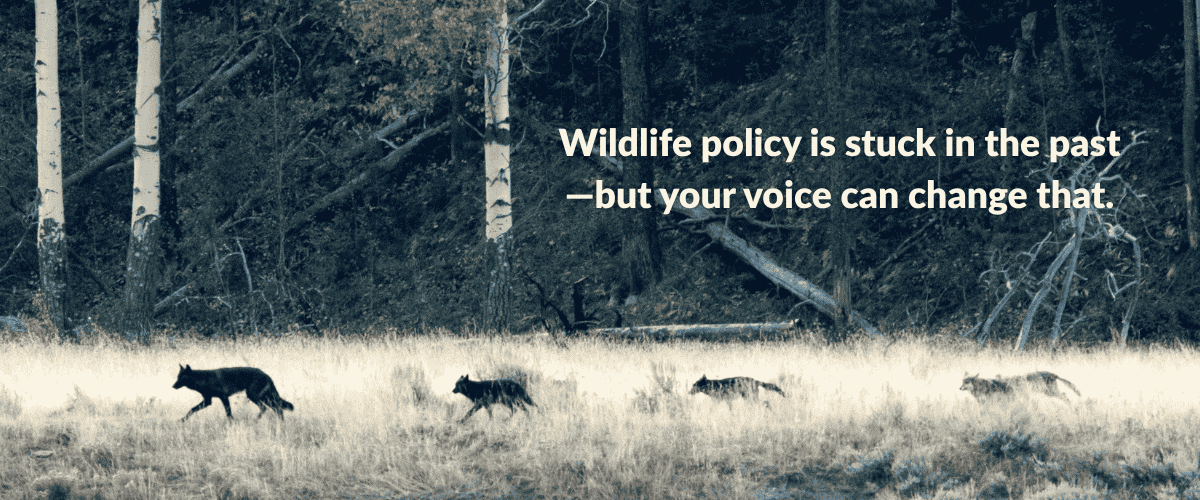Join the Movement to Reform State Wildlife Management and Save Wildlife

State wildlife agencies were designed to ensure hunters always had game animals to hunt. Today, our crises have evolved, but state wildlife management has not. Species are vanishing forever before our eyes and ecosystems are collapsing, but agencies are almost solely focused on selling hunting licenses and managing a few game animals.
If you agree state wildlife management needs to be more focused on protecting wildlife equally and wildlife commissions need to better represent the public, join us. Together, we can make wildlife governance more democratic, just, compassionate, and focused on ecological health.
Take The Pledge
I, [Name], pledge to:
Stand for wildlife as living beings with intrinsic and ecological value.
Join thousands of everyday people in my state committed to transforming how wildlife is governed, advocating for science-informed, democratic, and inclusive decision-making.
Take concrete action to influence my state leaders—governors, legislators, and wildlife commissioners—by providing public comment in at least one active wildlife campaign within the next three months.
Amplify this movement in my community by sharing this pledge with at least one friend, family member, or on social media within the next two weeks to inspire others to join the fight for wildlife justice.
Together, our collective action can drive meaningful change in wildlife governance, ensuring protection for all species and resilient ecosystems for generations to come.
Sponsored by
WHY THIS MATTERS
You’ve likely noticed natural areas in your neighborhood disappear over the years to development. What you might not notice are the wolf packs, families of beavers, and flocks of birds vanishing—along with their habitat. Unfortunately, state wildlife agencies—our first line of defense—are failing to respond.
In nearly every state, wildlife policies and institutions reflect their origins from a century or more ago. They were built to manage “game” animals like crops, favor the needs of hunters and anglers over the public, and never imagined the realities of the extinction crisis we’re living in. Carnivores are often treated as threats, many species have no legal protection, and the well-being of individual animals is largely ignored. Funding is tied to hunting and fishing licenses, and as those numbers fall, agencies are even more constrained.
The result? A system stuck in the past, focused on selling licenses and managing for human recreation rather than addressing the extinction crisis. Wild animals are still treated as resources, rather than as living beings with intrinsic and ecological value.
We need bold action to change this. Together, we must modernize the mission of wildlife management for the 21st century: protecting biodiversity, restoring ecosystems, and making decisions transparently, inclusively, and guided by science.
